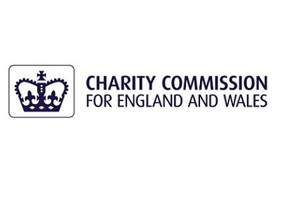In recent years, serious incident reporting has become a significant focus within the charity sector. The Charity Commission requires charities to report serious incidents, and expects a prompt, full and frank disclosure of them when they happen. The Covid-19 pandemic has resulted in many losses and incidents which may require reporting – but what constitutes a serious incident?
Serious incidents typically fall into one of four categories: harm to people, loss of money or assets; damage to the charity’s property; or harm to the charity’s work or reputation, which can be an actual event or just an allegation. The Charity Commission issued initial guidance on reporting during the pandemic in March 2020, but there was some concern that this guidance would have identified a large number of serious incidents. Given the unprecedented circumstances, some considered that this would lead to an additional administrative burden. Consequently, the Charity Commission withdrew this guidance, stating that it was “not as helpful” as the Commission would have liked and clarifying that charities should utilise the previously existing guidance.
In early June 2020, the Charity Commission published revised guidance to supplement its existing publications. It acknowledged that Covid-19 has led to scenarios which were not expected when the original guidance was published. The revised guidance includes a new table of examples to help trustees decide if an incident is reportable.
A matter of judgment
Deciding whether an incident is serious is a matter of judgment for charity trustees. This decision should be made taking into account the charity’s operations and finances – what is serious for one charity may not be for another. Reporting serious incidents can be delegated, but it is important that there is regular reporting back to the trustees, and that trustees ensure the reports are made promptly. This is especially important where a report was considered but a decision was made not to submit it, especially where the conclusion was borderline.
In the revised guidance, the Charity Commission emphasises that having to take action to follow government rules such as closure of premises is not in itself a serious incident. Instead, the trustees should assess the impact of this guidance on the charity to determine whether the incident is serious or not. The Charity Commission’s usual guidance requires a charity to report financial losses which do not involve a crime where the losses exceed £25,000 or 5% of the charity’s income; however, this threshold has been waived for losses occurring due to Covid-19 and the Commission has stated that trustees should “focus on the significance of the impact of any losses rather than the amount.”
To support trustees in deciding whether an incident is serious, the revised guidance provides a number of examples which emphasise the importance of considering the impact on the charity. For instance, the guidance states that a charity should not report single instances of Covid-19 within the charity. Conversely, if there is an outbreak which means that a charity cannot deliver services because of staff illness then this would be reportable.
Loss of income
Loss of income is not in itself a serious incident, but the guidance explains that loss of income from Covid-19 resulting in an inability to provide services to vulnerable beneficiaries is. Similarly, loss of income which results in insolvency, or a high likelihood of insolvency over the next 12 months, is a serious incident. Conversely, a loss of income with a less serious impact may not be a serious incident.
There are also examples provided by the Charity Commission, which are specific to the current pandemic. These include a charity being investigated by HMRC due to alleged abuse of the Coronavirus Job Retention Scheme, or by the police due to alleged breaches of lockdown measures.
When a serious incident is reported, the Charity Commission will look for reassurance that the trustees have taken steps to limit the impact of the incident and, if possible, prevent such an incident from recurring. Although how they might do so if the incident is a serious loss of income due to closure of a facility due to government guidance on social distancing, for example, is unclear. It is important for the trustees to carefully consider the steps which have been taken to prevent similar issues from arising in future, and the additional checks which will be made to assure them that the measures taken are effective. Finally, trustees should not only consider the immediate factors but also underlying root causes which may be structural or cultural.
There are likely to be more reportable instances in the current environment, and trustees should ensure that internal reporting mechanisms and decision-making is both timely and well documented.
Related articles










